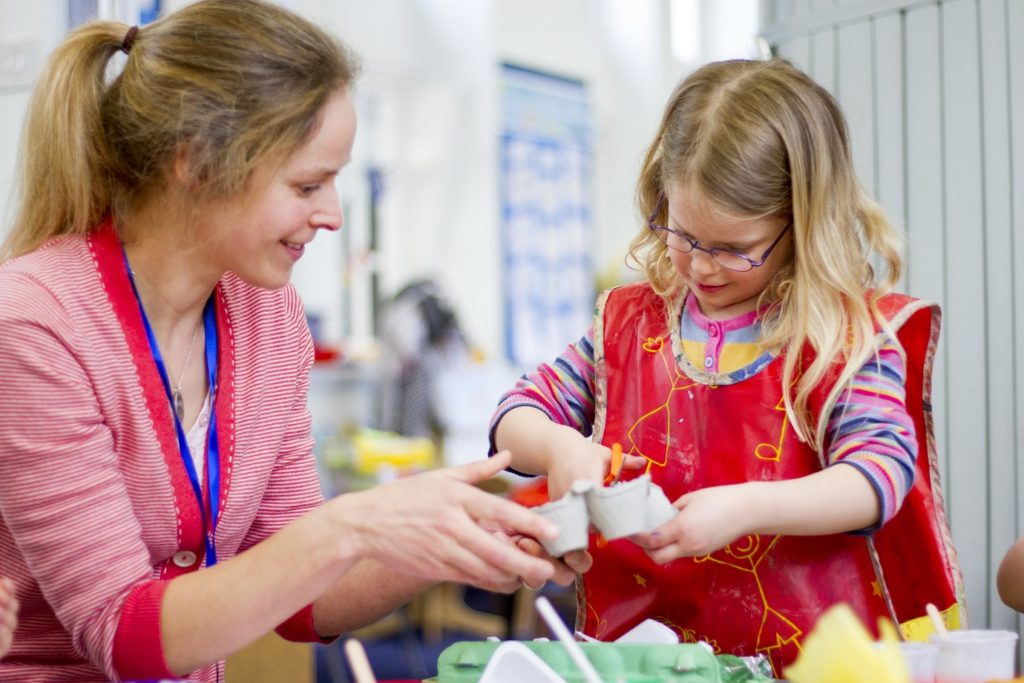Undervalued, underpaid and overworked, early childhood educators have been the silent workers of this pandemic. You haven’t heard claps of support for these workers and their contributions during COVID-19 are rarely mentioned.
Childcare workers in Victoria have been especially impacted by lockdowns, with the state currently in its sixth. Three early childhood educators from a Melbourne-based centre – Celine, Nalini and Lalitha* – share their experiences working in childcare and how they have been affected during COVID-19.
One major change they have all experienced is an increased workload, as the sector now requires greater assessment and reporting.
“When I first started around 1993, it was more hands-on. I used to do be on the floor with the kids, playing with them, interacting with them, engaging with them,” said Celine. “And yes, we had to do observations, but it has escalated to … program planning, summative assessments, mid-year reports, end of year reports.”
This impacts the time educators have to spend with the children. A recent report has found 80% of educators say the increased workload negatively impacts their ability to provide quality care to the children.
“We are so engrossed in this paperwork and organising all of these things, but the time that we have been given to spend with children is getting less and less,” said Nalini.

Source: United Workers Union
Furthermore, just over a quarter of the educators surveyed in the report said this means they spend 5-10 unpaid hours a month completing their programming. “I’m given four hours of planning a week and sometimes it’s just not enough. And as a result, I take work home to finish it,” said Celine.
Their workload has increased, yet their pay remains low and their contributions undervalued. This has all existed before COVID, and with little done about it, the pandemic has only exacerbated such problems in the sector.
Lockdowns have imposed on childcare workers a complete transformation of the work they do in what is a traditionally face-to-face, interactive job.
“Right now at my centre, we have half of the children … attending the childcare centres,” said Celine. “So I have to plan for the children on site and I also have to plan … remote learning programs for the children at home.”
“We are challenged because this is something new that we’ve never had to do, and working in childcare is hands-on, it’s not about having a remote learning program,” she said.
Remote learning means less face-to-face interaction with parents, which has added further work to their plate in easing the worries of parents. Since the pandemic began, 53% of educators say they have spent more time managing the anxiety of the parents of children under their care.
“The daily contact with the parents is important because we’re passing information and touching base with them and you know how the parents feels, whether they’re in a good place, whether their families are in a good place,” said Lalitha.
Despite the critical work early childhood educators are performing during this pandemic – caring for vulnerable children, supporting parents who are essential workers – they are consistently undervalued and overlooked.

Source: The Front Project
“We’re risking our lives, risking our families, getting them exposed to all this,” said Nalini. “But most of us are paid just a very minimal figure of say $25 an hour.”
“We are just going into this relying on our own resilience. There is no external help coming in,” said Celine.
This is largely because the childcare sector is made up of majority women and gender norms have associated women with care giving roles. Childcare workers are therefore not recognised for their qualifications and skills, and the stigma that their work is easy persists throughout society.

Source: Workforce Gender Equality Agency
“We are the backbone of essential workers going to work because with us looking after their children, they are able to go into work. But we are not being highlighted or we’re not even being mentioned,” said Celine.
“There are lots of assistance for frontline workers, the medical staff and the shops, but I don’t think people ever think that childcare is important,” said Lalitha.
Every day during the pandemic thousands of childcare workers have showed up on the frontlines to support essential workers, ease the fears of parents and care for their little ones. Yet they have received very little recognition for this critical role.
But childcare workers don’t show up for recognition or praise. Instead what drives Celine, Nalini and Lalitha is knowing they are providing a caring and safe space for children to grow.
“I feel children are our future, so if I can make a difference … at least to one child, my life has been worth it,” said Lalitha.
*Their names have been changed to protect their privacy


